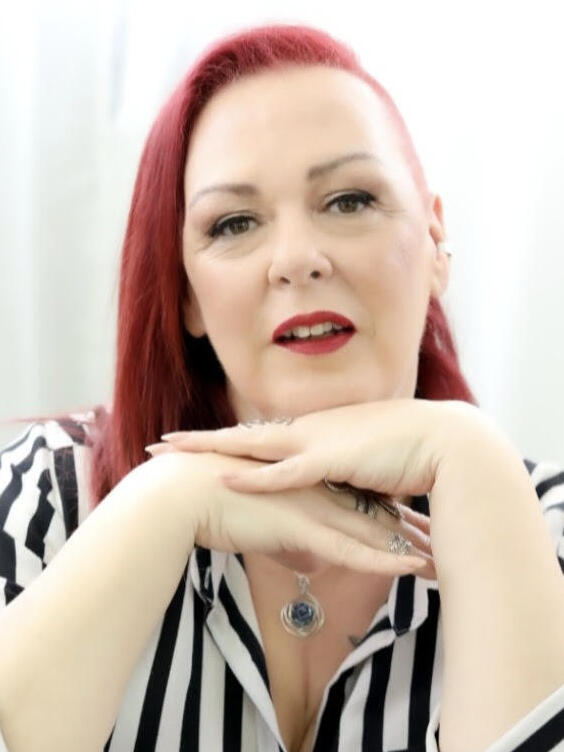“Love is as strong as death; jealousy is as cruel as the grave,” wrote the author of Song of Songs. The verse, says certified couples and sex therapist Liat Kiro, highlights the intensity of jealousy—defined in the Bible as harsher than hell itself and intertwined with the power of love.
“In relationships, love can easily awaken jealousy,” Kiro explains. “When it surfaces in its darker form, jealousy can be painful and destructive. At its core, jealousy is a natural feeling, and some would even argue a legitimate one. Most people feel it in some measure, even if they don’t admit it, because it’s often seen as negative. But healthy jealousy can actually signal commitment and a desire for the relationship’s success.
“On the other hand, once jealousy takes over, it’s very hard to control. One partner becomes suspicious and accusing, the other defensive and accused. That dynamic erodes trust, creates distance, inflicts hurt and deepens rifts in the relationship. It’s also important to remember that jealousy harms not only the partner who is targeted—it primarily damages the jealous partner, undermining self-confidence and fueling obsessive thoughts.”
Where does jealousy come from?
“Many factors can trigger jealousy, but often its roots lie in past experiences that created insecurity and negative thinking patterns,” Kiro says. “That can lead to fear of losing the relationship and constant suspicion, sometimes escalating to obsessive thoughts that disrupt daily life.”
She recalls one case: “A man came to me convinced his partner was cheating. He was jealous of her professional success. He never admitted it was jealousy—instead, he accused her of provoking his negative feelings. Through therapy, we discovered that his father’s infidelity had left him with trust issues in every relationship. On top of that, financial struggles after his parents’ divorce fueled his jealousy of her success. Comparisons, fear of failure and past pain created a toxic pattern in their relationship.”
Is jealousy always bad?
“To better understand jealousy, it helps to distinguish between jealousy for someone—a fear of losing the relationship—and jealousy of someone or something—the desire to have what someone else has, rooted in feelings of lack or inferiority.
“In relationships, positive jealousy can resemble healthy rivalry,” Kiro says. “For example, if one partner envies the other’s persistence, growth or expertise, and that motivates them to improve themselves—that’s constructive jealousy.”
Jealousy can also be a tool for drawing attention, she notes. “Sometimes, one partner will deliberately try to spark jealousy in the other to get the attention they feel is missing, or as a counter-response to jealousy. When done thoughtfully, this can actually strengthen the bond.”
How can couples cope with jealousy in a healthy way?
“First and foremost, open communication and setting clear expectations,” says Kiro. “When we express our feelings and concerns, we create empathy from the other side and can avoid situations that trigger jealousy.”
She gives an example: “You can say, ‘You’re always texting on your phone in secret and it makes me uncomfortable. Why are you doing this? How can I help you change this habit?’ In this way, you express a feeling (‘This makes me uncomfortable’), set expectations (‘I ask you to be open with me, no hiding’) and open a dialogue about prevention and improvement (‘How can I help to make things better?’).”
‘If you’re jealous of your partner’s wide social circle and feel neglected, use that as motivation to build your own friendships. That might mean learning new skills, taking classes or joining social groups that suit you’
Another case: a woman discovers her husband is liking and commenting on other women’s posts on social media without discussing it with her. She feels hurt, withdraws and isolates herself. “If she explodes, threatens or imposes sanctions, the trust crisis can deepen,” Kiro explains. “But if she communicates her feelings in a way that evokes empathy for her distress, it can lead to growth and positive change in the relationship.”
Kiro stresses the importance of personal and mutual responsibility. “Once one partner has a problem, it becomes our problem as a couple. If jealousy is harming the relationship, I need to ask: what is my part in this? How can I help her, and thereby us? What am I doing that fuels her jealousy? How can I change that? How can I strengthen her confidence in herself, in me and in our bond?”
She also advises couples to “cling to the light, not the darkness”—focusing on the positives in the relationship and reinforcing shared values. “If shared enjoyment and spending time together are central to your relationship, use them as anchors in moments when jealousy threatens to destabilize things.”
Obsessing over negative thoughts fueled by jealousy, she warns, is destructive. Instead, jealousy can be channeled toward constructive goals. “For example, if you’re jealous of your partner’s wide social circle and feel neglected, use that as motivation to build your own friendships. That might mean learning new skills, taking classes or joining social groups that suit you.”
 Liat Kiro Photo: Dana Ofir
Liat Kiro Photo: Dana OfirAre there relationships without jealousy?
“Absolutely. In such couples, jealousy isn’t absent but managed—through balance, openness and transparent communication—so it doesn’t surface. These are couples who feel secure and comfortable in their relationship, know each other well and can channel their emotions beyond jealousy. Often, these are people with strong self-confidence and little emotional baggage from the past. Such couples can even sustain open relationships, based on mutual trust and support and still maintain a strong, healthy bond.”
Her bottom line: “You can’t cancel jealousy when it arises—but you can learn to manage it so it doesn’t become destructive. The way we handle this tricky emotion is key. By building inner resilience, boosting self-confidence, understanding the roots of jealousy and creating mechanisms for personal and mutual coping, couples can strengthen their relationship. In many cases, professional guidance can provide tools, direction and support.”






